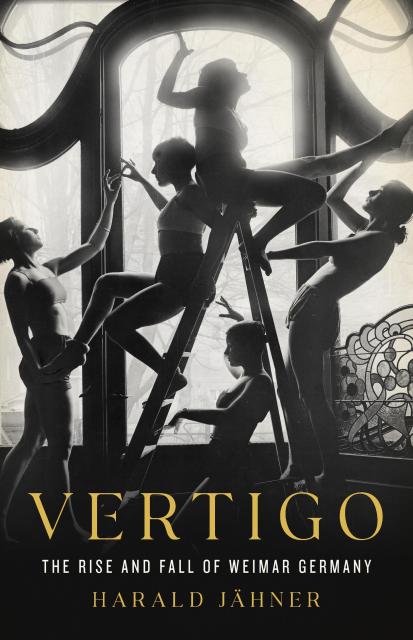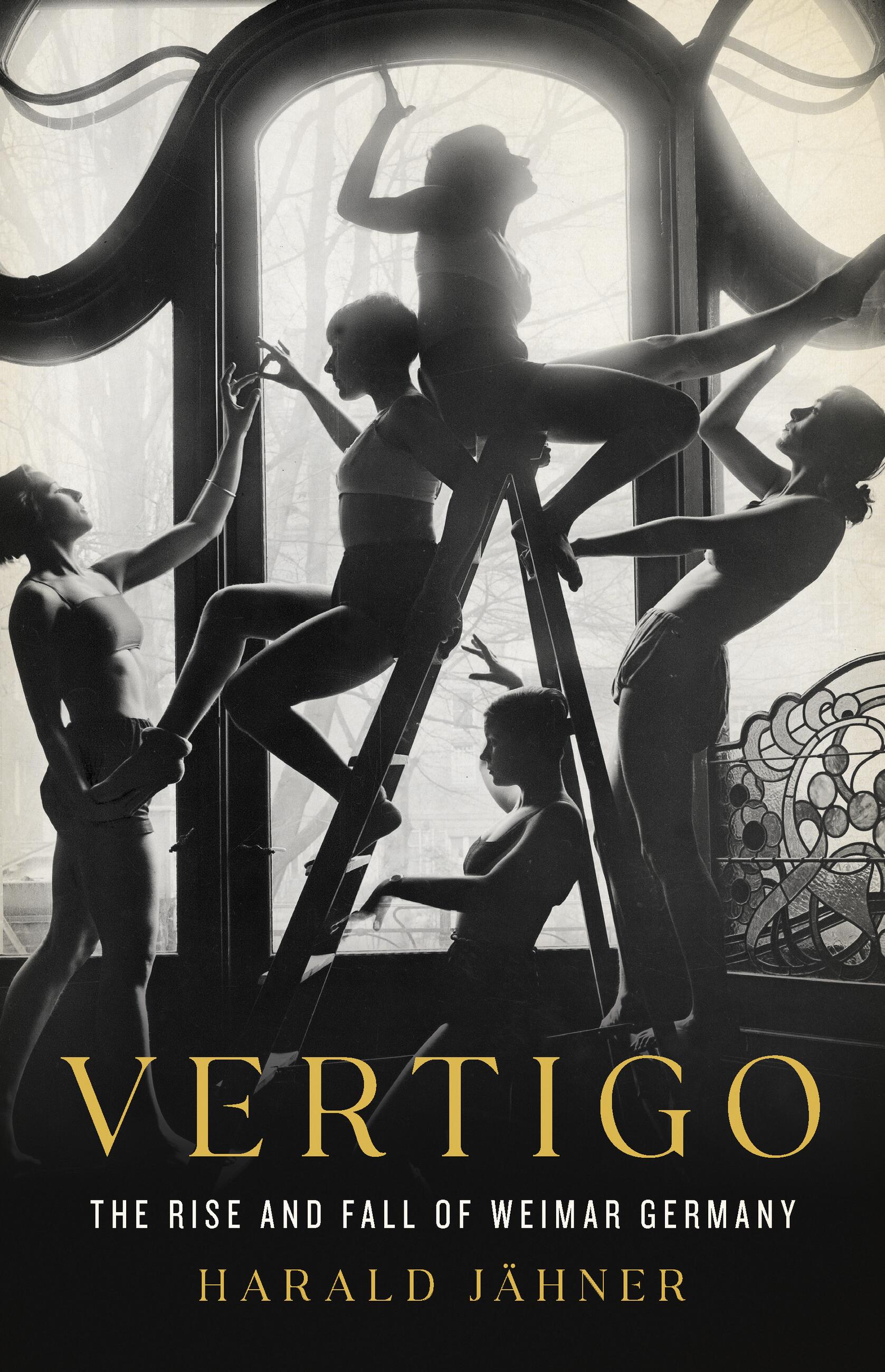Promotion
Shop now and save 20% on your back-to-school purchases & get free shipping on orders $45+ Use code: SCHOOL24
Vertigo
The Rise and Fall of Weimar Germany
Contributors
Formats and Prices
Price
$35.00Price
$45.00 CADFormat
Format:
- Hardcover $35.00 $45.00 CAD
- ebook $19.99 $25.99 CAD
- Audiobook Download (Unabridged) $31.99
Also available from:
The dramatic and consequential history of Germany’s short-lived experiment with democracy between the world wars, when vibrant cultural experimentation collided with political and economic turmoil
Out of the ashes of the First World War, Germany launched an unprecedented political project: its first democratic government. The Weimar Republic, named for the city where it was established, endured for only fifteen years before it was toppled by the insurgent Nazi Party in 1933. In Vertigo, prizewinning historian Harald Jähner tells the Republic’s full story, capturing a nation caught in a whirlwind of uncertainty and struggling toward a better future.
In the aftermath of World War I, Germany was buffeted by political partisanship, economic upheaval, and the constant threat of revolutionary violence. At the same time, many Germans embraced newly liberated lifestyles. They flouted gender norms, flooded racetracks and dance halls, and fostered a vibrant avant-garde that encompassed groundbreaking artists like filmmaker Fritz Lang, painter Wassily Kandinsky, and architect Walter Gropius. But this new Germany sparked a reactionary backlash that led to the Republic’s fall to the Nazis and, ultimately, the conflagration of World War II.
Blending deeply researched political history with the firsthand experiences of everyday people, Vertigo is a vital, kaleidoscopic portrait of a pivotal moment in German history.
Genre:
-
Sunday Times
“The Weimar Republic is a byword for hedonism and excess. A new history captures the mood with gusto…For obvious reasons most histories of the Weimar years are dominated by politics, with Hitler and his cronies lurking ominously on the margins. But Jähner’s account is more unconventional, more surprising and, frankly, more enjoyable…I enjoyed it enormously.”
-
Telegraph (5-star review)
"Vertigo is outstandingly readable. It is an entertaining map of 15 crucial years of Europe's history, but it also functions, as the author no doubt intended it to, as a super-vivid then-to now translation of how easily dictatorship roots itself under civilisations skin. We are, with insight and elegance, being thoroughly warned."
-
Financial Times
“Energetic and engaging…Jähner’s approach not only carries a heavy cultural spin but puts the politics of collective feeling—from exhilaration to despair—centre stage.”
-
Kirkus (starred review)
“Outstanding…A gripping account of a nation’s experiment in democracy.”
-
Sinclair McKay, author of The Secret Lives of Codebreakers
“Wonderfully written and compulsively, electrifyingly readable. The Weimar Republic and its chilling fall is—like Shakespearean tragedy—an enduringly fascinating, profoundly human story. And with consummate skill and a rich breadth of research, Harald Jähner makes us look again at what we thought we knew and gives this history new, extraordinary depth. Taking us through the neurotic violence of the 1918 German revolution, and the neon flowering of Weimar art and culture, thence to the dark rise of Hitler, Jähner deftly overturns many old assumptions about economics and politics along the way. And against this backdrop, he also invites us to explore everything from nude gymnastics to modernist architecture, fast cars to dance halls, and, fundamentally, love and loss and the cold horror of hate.”
-
James Hawes, author of The Shortest History of Germany
“Any decent centrist will shiver at this wonderfully illustrated account of how Weimar’s heady metropolitan progressiveness failed to cope with loss of national pride, technological modernism, social change, early globalization, and financial crash. The confidence of the middle classes was lost, readying them to accept wild conspiracy theories: a new fusion of hard left and hard right, National Socialism, was swept to power by Germany’s flyover country, with disastrous results which the traditional elites only saw too late. Vertigo provides a priceless lesson for anybody interested in Germany then—or the world today.”
-
Julia Boyd, author of Travelers in the Third Reich
“Vertigo is outstanding. Harald Jähner’s gift for illuminating the big picture with telling detail gives the reader an uncanny sense of what it was actually like to be present in Germany during the Weimar Republic. This is history at its very best.”
-
John Kampfner, author of Why the Germans Do It Better
“From women in the workplace to traffic lights, from yo-yos to dance culture, Harald Jähner tracks the 15 chaotic years of the Weimar Republic with his characteristic verve and attention to detail. Vertigo is one of the most gripping accounts of an era spanning war defeat, humiliation, and failed revolution in 1918 to the violence, intimidation, and propaganda of the Nazis' rise to power in 1933. It contains many lessons for the world now.”
- On Sale
- Sep 3, 2024
- Page Count
- 480 pages
- Publisher
- Basic Books
- ISBN-13
- 9781541606203
Newsletter Signup
By clicking ‘Sign Up,’ I acknowledge that I have read and agree to Hachette Book Group’s Privacy Policy and Terms of Use







